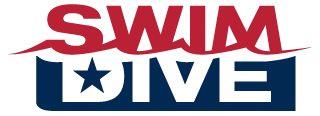Temporary Recruiting Dead Period Until April 15
Yesterday, the NCAA Board of Governors directed Divisions I, II and III to enact modifications, changes, or waivers to legislation and rules where appropriate to provide necessary relief due to regulations and policies impacted by COVID-19. Based on that action, the NCAA Division I Council Coordination Committee conducted a teleconference and took action on behalf of Division I.
Actions Related to Regulations and Policies Impacted by COVID-19.
Emergency Legislation Adopted to Establish a Temporary Recruiting Dead Period. The Council Coordination Committee adopted emergency legislation to establish a temporary recruiting dead period (as defined in NCAA Bylaw 13.02.5.5) in all NCAA Division I sports, effective immediately. The dead period will remain in effect at least until April 15 , at which time the Council Coordination Committee will re-evaluate the status of the situation. Based on the immediate effective date, reasonable measures should be taken to cease all recruiting activities that are not permissible during a dead period (e.g., official and unofficial visits, contacts and evaluations).
Issues Related to Seasons of Competition Legislation . The Council Coordination Committee agreed that it will be appropriate to grant relief for the use of a season of competition for student-athletes who have participated in spring sports. The committee recognizes that several issues need to be addressed related to providing an additional season of competition, including financial aid implications. The committee will also discuss issues related to seasons of competition for winter sport student-athletes who were unable to participate in conference and NCAA championships. The committee recognizes that student-athletes are making life decisions that will be helped by understanding whether an additional season of competition would be available, and as such, will work in a timely manner to make informed decisions. Finally, the committee will review and discuss the additional issues in a timely manner and decisions will be communicated to the membership as they are made.
Actions to Support Student-Athletes and Communities . The Council Coordination Committee reiterated that conferences and institutions should make decisions and take action in the best interests of their student-athletes and communities without first seeking approval through an interpretation or waiver. For example, institutional discretion should be used to provide appropriate support, benefits and expenses to student-athletes as adjustments are made to academic and athletics schedules.
The Council Coordination Committee emphasized the need to prioritize the mental health of student-athletes, coaches and administrators.
Additional updates and guidance on legislative issues that arise in the coming days and weeks will be announced through LSDBi and provided to conference offices. The NCAA staff is reviewing and accessing priorities to rules-related issues with the assistance of governance entities. Specific questions may be submitted to d1news@ncaa.org. Questions will be addressed by the NCAA academic and membership affairs staff with the appropriate assistance from governance committees.
